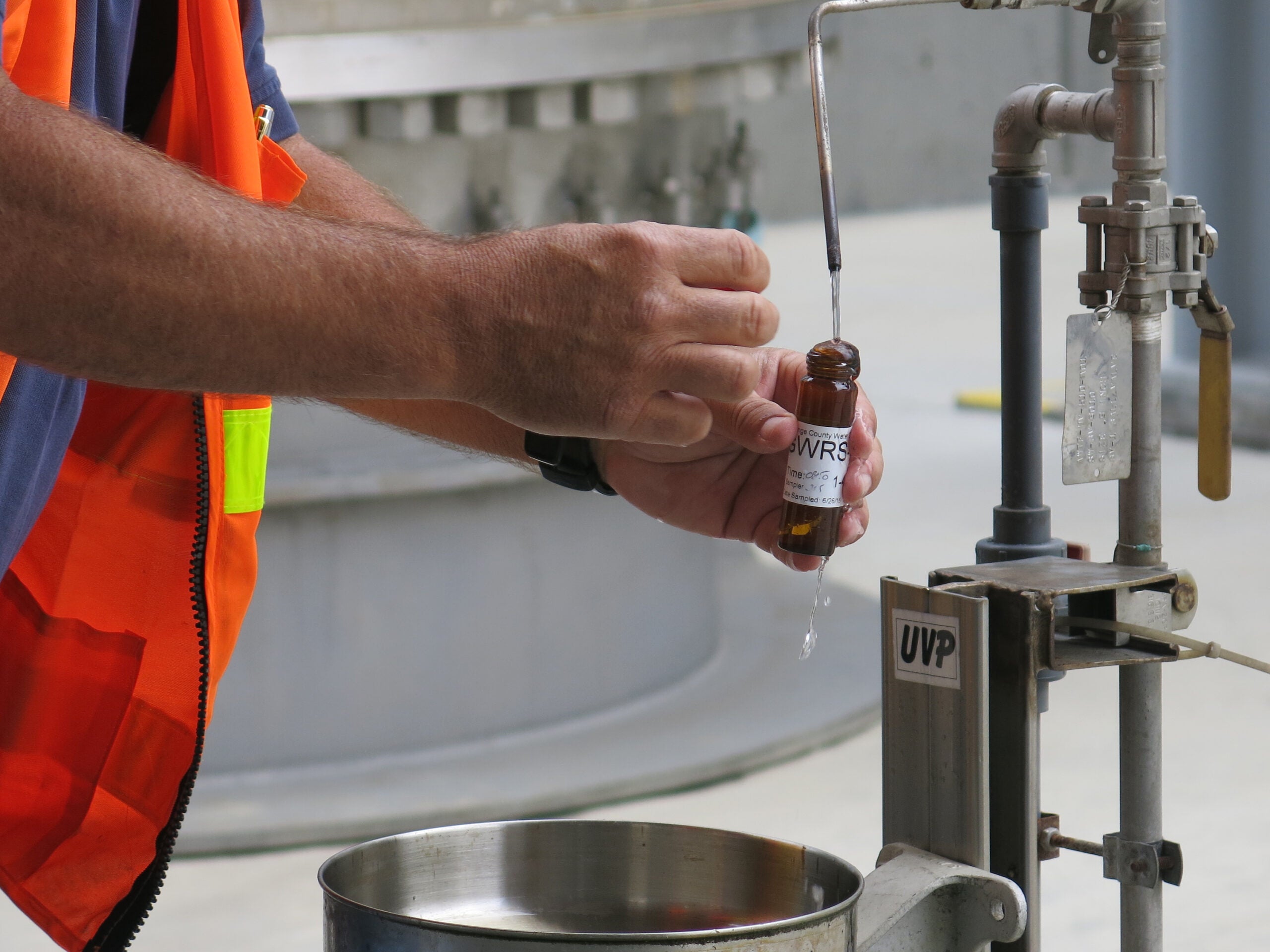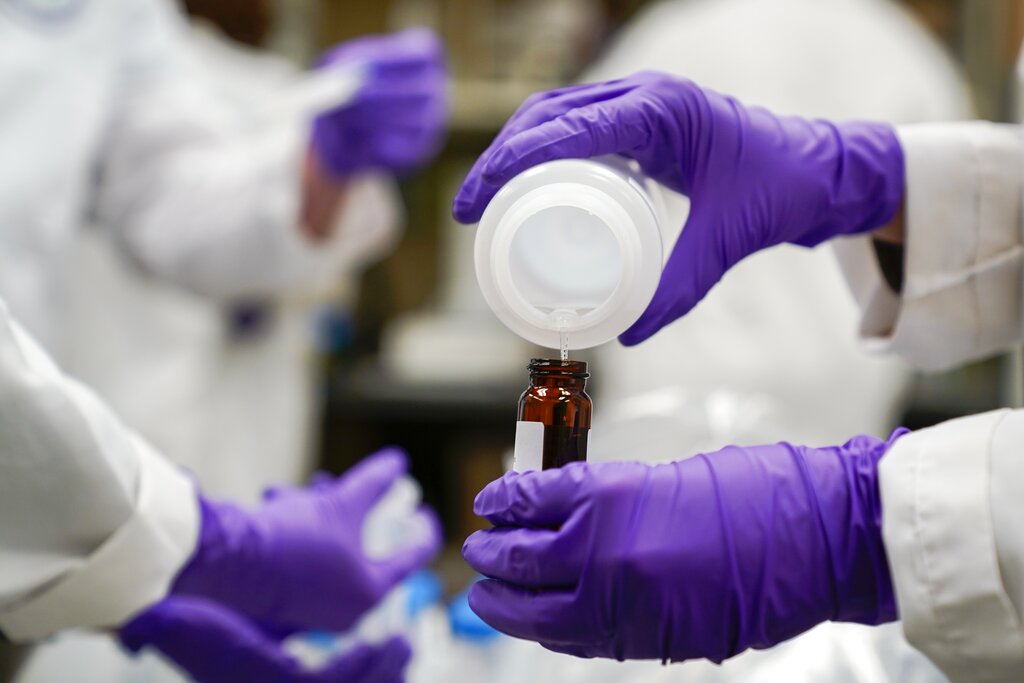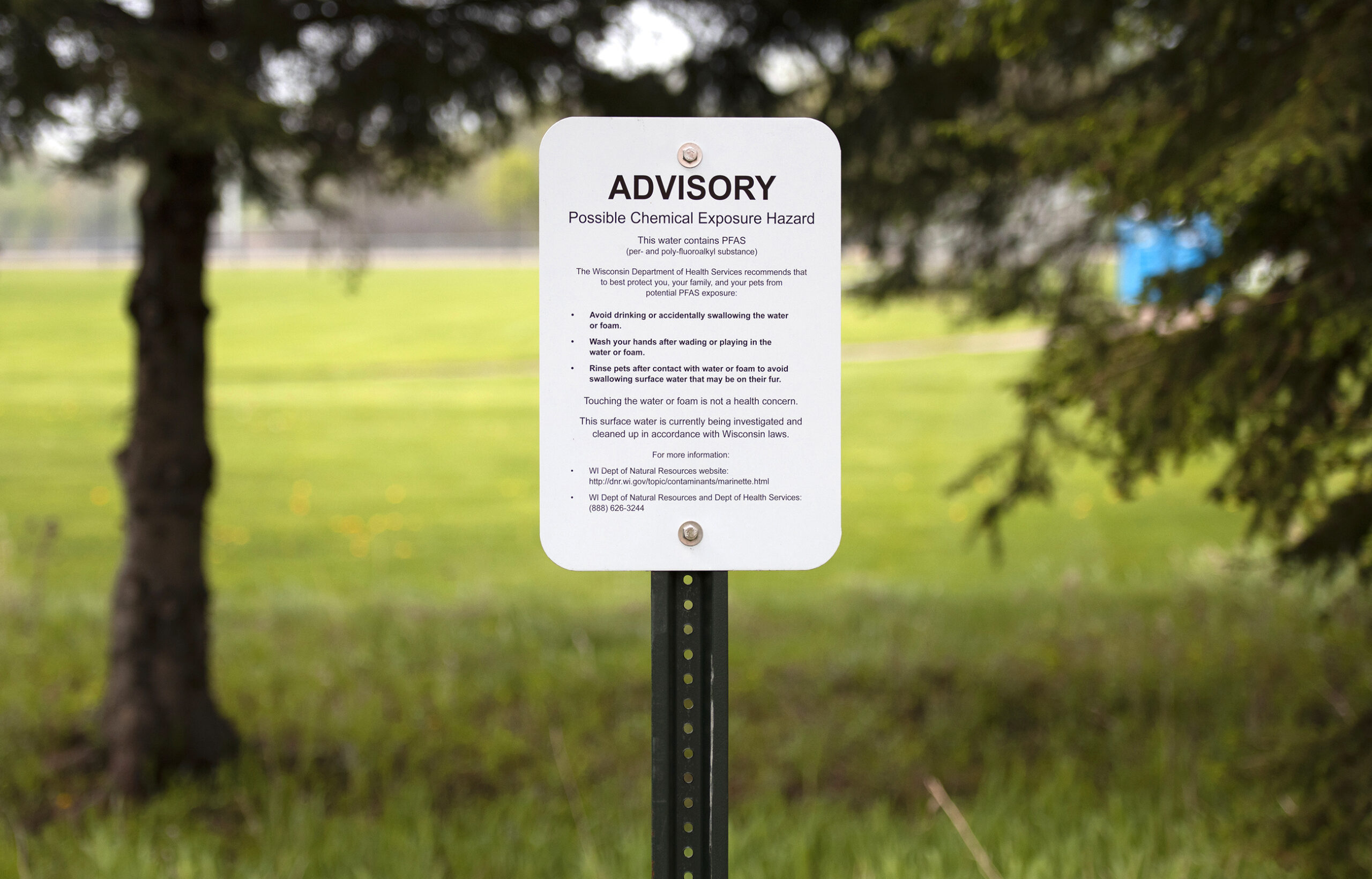In just over a month, the state’s largest business lobby has filed another lawsuit against the Wisconsin Department of Natural Resources over so-called “forever chemicals” known as PFAS — this time for conducting PFAS sampling in wastewater.
Wisconsin Manufacturers and Commerce (WMC) filed a complaint on Monday in Jefferson County Circuit Court against the DNR, claiming the agency is unlawfully seeking to sample wastewater for PFAS that’s released from industrial and municipal facilities. The business group argues the DNR lacks explicit authority to conduct such sampling among facilities that operate under wastewater discharge permits.
WMC wants to prevent the DNR from collecting samples and releasing the data to the public. Jefferson County Judge William F. Hue granted a temporary restraining order on Monday to bar the agency from sampling for PFAS.
News with a little more humanity
WPR’s “Wisconsin Today” newsletter keeps you connected to the state you love without feeling overwhelmed. No paywall. No agenda. No corporate filter.
In a statement, DNR spokesperson Sarah Hoye said the agency has been conducting sampling among facilities that hold wastewater discharge permits to gather information as the DNR develops standards for PFAS in surface water. The DNR launched the rulemaking process last year after the Natural Resources Board approved creating standards for PFOA and PFOS in drinking water, surface water and groundwater.
According to online court records, Hue ruled Thursday that the temporary restraining order will remain in place to bar the release of data to the public, but the DNR will be allowed to resume PFAS sampling.
WMC declined to comment, citing ongoing litigation. Another hearing is set for April 12.
The complaint states the DNR is sampling wastewater for more than 30 PFAS chemicals as the agency seeks to gauge the economic impact of creating standards for the chemicals in drinking water, surface water and groundwater.
“(F)acilities who are sampled risk being publicly stigmatized as polluters, despite the fact that the PFAS compounds being sampled for are not regulated under state law, and the rulemaking that Defendants are engaged in to regulate some of those compounds may not even ultimately result in regulations being adopted,” the complaint reads. “Further, Defendants are not even attempting to regulate the overwhelming majority of compounds they are sampling for.”
Perfluoroalkyl and polyfluoroalkyl substances, commonly called PFAS, are manmade chemicals found in firefighting foam and everyday products. They don’t break down easily in the environment, and they’ve been linked to health problems, including some cancers, thyroid disease and reproductive issues. PFAS contamination has been identified at more than 50 sites statewide, including in Marinette, La Crosse, Superior and Madison.
The lawsuit states the DNR contends it has authority to conduct PFAS sampling of wastewater under state law and rules that govern wastewater discharge permits. But, WMC argues that any authority the agency may have to sample for PFAS is only implied and not explicitly spelled out as required under state law.
WMC added that the agency’s PFAS regulations would likely be subject to legislative approval because they expect standards will cost treatment plants tens of millions of dollars to comply, saying “it is thus uncertain if this regulation will even be allowed to move forward.”
The group has been fighting efforts by state regulators to identify where PFAS contamination exists in the absence of state standards. WMC sued the DNR in February because they claim regulators are unlawfully asking businesses to test for PFAS as a hazardous substance under state environmental cleanup programs.
Environmental groups have argued that the lack of data on PFAS prevents regulators from understanding the scope of the problem, putting public health at risk.
“This comes down to people — residents of Wisconsin — have the right to know what is and what is not contaminated with PFAS and just ignoring this problem means that public health will continue to be harmed,” said Carly Michiels, government relations director for Clean Wisconsin. “I don’t think waiting until standards are in place and doing it five years from now, or however long that’s going to take, is a reasonable excuse to not get people the help and the remediation that they need.”
In 2019, the DNR asked 125 wastewater treatment plants to voluntarily conduct sampling for PFAS chemicals, but the vast majority declined to test their wastewater for PFAS. The Municipal Environmental Group, League of Wisconsin Municipalities and Wisconsin Rural Water Association had advised their members not to test for the chemicals, pointing to the lack of state standards.
At that time, there were no state sampling protocols in place, and labs had not yet been certified to test for PFAS.
Madison firm Stafford Rosenbaum serves as legal counsel for the Municipal Environmental Group-Wastewater Division. Attorney Paul Kent said 77 municipal treatment plants have had their wastewater sampled by the DNR. He said the group is not objecting to the sampling effort as it’s been working with the agency to reduce PFAS at the source and prevent the chemicals from entering their treatment systems.
“From a municipal perspective, we’re saying regardless of whether or not (the DNR) had the authority to do it, we’re more confident in the data at this point,” said Kent. “To the extent it can help in crafting source reduction strategies, we think that’s overall helpful to the direction this ought to be going.”
He noted that operators of treatment plants have worked to reduce contaminants like mercury at the source by capturing and diverting them from entering those systems, as well as encouraging substitute products that don’t pose a risk to the environment.
Chris Groh, executive director of the Wisconsin Rural Water Association, said they’re now supporting the DNR’s sampling to gather more information. However, he fears people will misinterpret the data if it’s made public due to what he perceived to be a lack of knowledge about what level of exposure constitutes a public health risk.
“We’re all for providing clean water — tested water,” said Groh. “We realize that there are PFAS issues in different parts of the state, and we’re interested in working with DNR to set a reasonable standard and with EPA, for that matter, to set a reasonable standard.”
The DNR is developing state regulations for the chemicals due to the lack of federal standards for PFAS, which will take years to develop. The state’s rulemaking process could still take another year to complete. Residents of communities that have been affected by PFAS contamination have grown frustrated with the process and time it takes to develop regulations, including Marinette city council member Doug Oitzinger. The Marinette and Peshtigo area have been subject to PFAS contamination stemming from Tyco Fire Products’ fire training facility in Marinette.
“All along the way, WMC fights the development of the rule and challenges the science behind the (Department of Health Services) recommendation,” said Oitzinger in an email. “At the same time, it rants about the lack of a rule and files suit against the DNR.”
He added that the business group was successful in lobbying lawmakers to weaken an emergency rule that stripped numeric targets for treatment of firefighting foam that contains PFAS as part of enforcing a law that aimed to outline testing, treatment, storage and disposal of such foam.
In 2019, the state Department of Health Services recommended a combined groundwater standard of 20 parts per trillion for two of the most common PFAS chemicals: PFOA and PFOS. State health officials expanded that recommendation to include four additional PFAS substances in November. The Environmental Protection Agency has set a health advisory level of 70 parts per trillion for PFOA and PFOS.
Wisconsin Public Radio, © Copyright 2025, Board of Regents of the University of Wisconsin System and Wisconsin Educational Communications Board.







